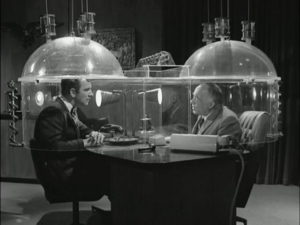
Civility In The Workplace Training: A New Norm
Embracing Civility: Elevate Your Leadership With Transformative Workplace Training
Building a civil workplace culture has become critical to leadership development in today’s fast-paced, globally connected business world. The dynamics of modern organizations demand leaders who not only possess technical expertise but also embody emotional intelligence, empathy, and respectful communication. Unlock your leadership potential and embrace a new era of success with Civility in the Workplace Training from The Edge Executive Coaching & Training. Visit our website to explore our range of services. Through their testimonials, we take inspiration from the words of our satisfied customers. Contact us at (708) 848-5945 to start your journey toward transformative leadership.
Importance Of Civility In The Workplace Training
In the contemporary work landscape, the value of civility must be considered. A civil workplace fosters mutual respect, inclusivity, and open communication. It positively influences employee morale, engagement, and job satisfaction, increasing productivity and reducing turnover. Moreover, a civil workplace cultivates a collaborative and cohesive team environment, allowing individuals to thrive and contribute their best to organizational success.
Embracing Positive Change: The Need For Civility Training
Building a civil workplace begins with recognizing the need for positive change. Civility training allows individuals and leaders to develop essential skills in conflict resolution, effective communication, and empathy. By embracing Civility Training, organizations communicate that they prioritize respect and inclusivity, creating an organizational culture that resonates with employees, clients, and stakeholders.
Elevating Leadership Skills: The Role Of Executive Coaching Programs
Executive Coaching for Leaders goes beyond traditional training methodologies, offering personalized guidance and support to unlock an individual’s full potential. With a specific focus on elevating leadership skills, executive coaching plays a pivotal role in fostering civility in the workplace. Let’s explore how executive coaching programs empower leaders to champion positive change, embody emotional intelligence, and cultivate a civil and supportive work environment.
-
Personalized Guidance And Support
Executive coaching provides one-on-one attention tailored to the unique needs of each leader. Coaches work closely with individuals to understand their strengths, challenges, and leadership style, allowing them to craft personalized development plans that align with organizational objectives.
-
Cultivating Emotional Intelligence
Emotional intelligence (EI) is a cornerstone of effective leadership and is closely linked to the practice of civility. Executive coaching programs emphasize developing EI, enabling leaders to understand and manage their emotions and those of others. This heightened emotional awareness fosters empathy, compassion, and the ability to connect with team members more deeply.
-
Navigating Complex Interpersonal Dynamics
Workplace interactions can be intricate, especially for leaders overseeing diverse teams. Executive coaching equips leaders with strategies to navigate complex interpersonal dynamics, ensuring that disagreements are handled constructively and conflicts are resolved amicably.
-
Promoting Constructive Communication
Communication lies at the heart of a civil workplace. Through executive coaching, leaders refine their communication skills, learning to articulate their thoughts clearly, actively listen to others, and offer constructive feedback. Effective communication fosters a culture of openness and trust, where team members feel valued and encouraged to contribute their ideas.
Defining Civility: Creating Respectful And Inclusive Environments
Understanding the essence of civility is crucial for effective workplace implementation. Courtesy goes beyond politeness; it entails genuine respect and consideration for colleagues and team members. Creating an inclusive environment ensures diverse perspectives are valued and heard, fostering creativity and innovation. Through Civility Training, individuals understand how their actions and words impact others, paving the way for meaningful connections and collaborations.
Impact Of Civility On Workplace Culture And Employee Morale
A culture of civility is not merely an aspirational goal but a fundamental pillar that underpins a thriving organization. By nurturing an environment of respect, empathy, and inclusivity, organizations can unleash the full potential of their workforce, foster collaboration, and ignite a sense of purpose among employees.
-
Heightened Creativity And Innovation
In an inclusive and respectful workplace, individuals feel empowered to express their unique perspectives and ideas. This freedom to share diverse viewpoints fosters creativity and innovation within teams. A civil workplace encourages constructive feedback and open dialogue, leading to breakthrough solutions and continuous improvement.
-
Strengthened Team Collaboration
Civility plays a crucial role in building strong team relationships. When individuals treat one another with respect, it builds trust and strengthens collaboration. Teams with solid camaraderie are more effective in problem-solving, decision-making, and achieving collective objectives.
-
Positive Organizational Reputation
An organization that prioritizes civility earns a positive reputation in the marketplace. Clients, customers, and partners are more inclined to engage with a company known for its respectful and ethical practices. A favorable reputation enhances brand loyalty and attracts top talent, contributing to the organization’s long-term success.
-
Increased Employee Retention
Employees are more likely to stay loyal to an organization that values and invests in their well-being. A culture of civility contributes to employee retention, reducing turnover and associated costs. This continuity in the workforce fosters institutional knowledge and continuity in projects.
-
Higher Productivity And Performance
Civility in the workplace positively impacts productivity and performance. In a civil work environment, employees are motivated to give their best effort, leading to higher productivity and efficiently achieving organizational objectives.
Leveraging Executive Coaching Services For Sustainable Change
To ensure long-term success, sustainable change requires ongoing support and evaluation. Executive Coaching Services extend beyond training sessions, providing leaders with continued guidance as they integrate civility into their daily practices. By monitoring progress and soliciting feedback, organizations can sustain a culture of civility that endures through challenges and growth.
Tailoring Civility Training For Senior Roles: Meeting Unique Needs
For executives and managers preparing for senior roles, Civility Training must address their challenges and responsibilities. Tailored training programs equip leaders with the tools to foster a cohesive and respectful work environment where diverse perspectives are valued and constructive communication prevails.
The Ripple Effect: How Civility Training Transforms Organizational Dynamics
Civility training has a profound ripple effect throughout an organization. When leaders champion civility, their behavior influences others to adopt a similar mindset. As a result, a culture of respect and inclusivity permeates the entire organization, impacting individual interactions, decision-making processes, and organizational success.
Conclusion
Civility in the Workplace Training is no longer an option but a necessary investment for organizations seeking to thrive in the modern business landscape. As the new norm in the workplace, civility creates a work environment where everyone feels valued, respected, and empowered to contribute their best. At The Edge Executive Coaching & Training, we firmly believe that civility is the key to unlocking a workplace’s true potential. Our comprehensive Executive Coaching Services empower leaders to elevate their skills and prepare for senior roles confidently and gracefully. Read inspiring words from our satisfied clients through their testimonials. To take the first step towards a more civil workplace, contact us at (708) 848-5945. Let us partner with you on your path to becoming a truly exceptional leader, driving success through the power of civility.
The Edge Executive Coaching And Training Offers Services As Follows:
Frequently Asked Questions
How Can Workplace Civility Training Contribute To Employee Well-Being?
Workplace civility training enhances employee well-being by reducing stress and promoting a supportive work environment. Employees feeling respected and valued positively impacts their mental and emotional health.
Can Workplace Civility Training Help Address Microaggressions In The Workplace?
Workplace civility training can address microaggressions by raising awareness and providing tools to recognize and manage unconscious biases. It fosters an inclusive environment where all employees feel accepted.
Is Workplace Civility Training Suitable For Small Businesses As Well?
Workplace civility training is beneficial for small businesses. It promotes a positive work culture, improves teamwork, and contributes to the long-term success of any organization, regardless of its size.
Can Workplace Civility Training Improve Customer Relations And Loyalty?
Yes, workplace civility training positively impacts customer relations. Employees practicing civility with clients and customers create a positive experience, leading to customer loyalty and repeat business.
How Can Workplace Civility Training Help Employees Handle High-Pressure Situations?
Workplace civility training equips employees with emotional intelligence and coping strategies, enabling them to manage high-pressure situations with composure and professionalism.
Can Workplace Civility Training Improve Teamwork In Remote Work Settings?
Workplace civility training can improve teamwork in remote work settings by promoting transparent and respectful communication in virtual environments. It strengthens connections among remote team members.
What Sets Workplace Civility Training Apart From General Communication Training?
Workplace civility training is specifically tailored to address respectful and inclusive behavior in the workplace. It emphasizes emotional intelligence and conflict resolution, critical elements in fostering a civil work environment.
How Can Organizations Measure The Return On Investment (ROI) Of Workplace Civility Training?
Organizations can measure the ROI of workplace civility training by analyzing changes in employee satisfaction, productivity, retention rates, and reduced conflicts. Positive shifts in these areas indicate a successful training program.






